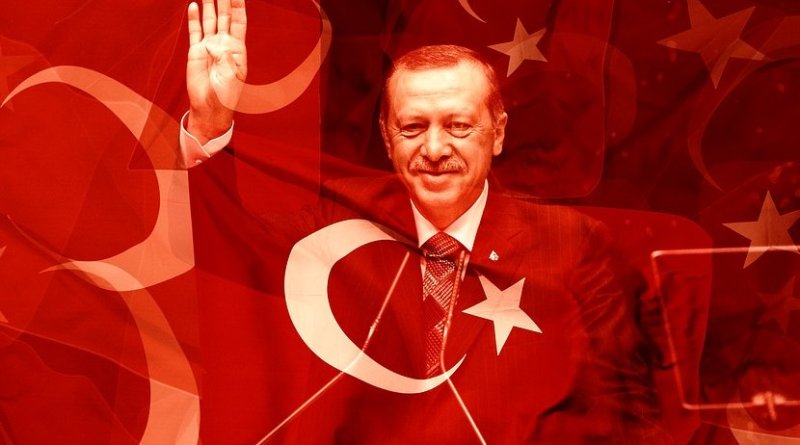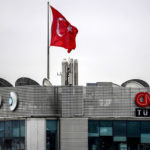Turkey has come a long way as a pillar of NATO and the West during the Cold War and has recently gone from being a credible member of the Council of Europe and a country seeking to join the European Union to a destructive and untrustworthy partner for NATO and the West. Turkey’s conflicts and tensions with European countries and the United States have escalated gradually since the justice and development party (AKP) came to power in 2002. In 2020 the Erdogan-led Turkey saw a profound shift in relations with its traditional Western partners. This transformation took place at a time when Turkish foreign policy was close to being militarily influenced by nationalist narratives in order to exert Ankara’s power to near abroad.
The early years of AKP’s rise to power were accompanied by economic growth and political reform, and the Turkish government embarked on a range of structural reforms by abandoning the past and engaging in constructive engagement with the EU. When negotiations for Turkey’s accession to the European Union began in 2005, Turkey was moving in line in many respects with European norms and standards and with the financial and technical support of the European Union. Turkish-European relations deteriorated when Cyprus joined the European Union in 2004 but Turkey refused to normalize relations with Cyprus. Consequently, in 2006, Brussels imposed restrictions on Turkey’s EU accession process so much so that former German Chancellor Angela Merkel announced that Turkey’s membership in the European Union will happen in a few light-years.
The negative reaction of Europe to Turkey’s membership in the European Union slowed down the process of economic and financial reforms inside Turkey. Erdogan’s authoritarianism also peaked and democratic reform processes stopped. The violent crackdown on Park Gezi protesters in 2013 and the rift between Erdogan and his political ally Gulen led to widespread purges and worsening of political freedoms and the strengthening of authoritarianism, especially after the failed 2016 coup.
The decline in Erdogan’s popularity in 2018 forced the Ankara government to form an alliance with the extremist Nationalist Movement Party. This resulted in the further consolidation of the ruling authoritarian wave domestically and the deterioration of relations with the Kurds. Also, Turkey pursued an aggressive and expansionist foreign policy such as the Blue Homeland Doctrine in the eastern Mediterranean and the Aegean Sea. This doctrine has resulted in increasing tensions and conflicts with Greece and Cyprus and increasing military role and influence in areas where Erdogan views as Turkey’s historical sphere of influence, according to his ambitious expansionist plan.
Thus, in the years leading up to 2020, Turkey gradually showed a different foreign policy orientation. Erdogan promoted an expansionist orientation with an ambitious plan to strengthen the military. Erdogan’s government dissatisfied with Greek sovereignty over islands off its coast refused to recognize Greek airspace and territorial waters and has continued to intervene in Cyprus domestic issues.
The tendency towards authoritarianism, and resorting to extremist nationalism in the face of deteriorating domestic conditions, has increasingly placed Turkish foreign policy in conflict with the interests of the West and NATO. The problem is not that Erdogan is simply pursuing a different approach from the West and NATO, but in fact, he has deliberately sought to undermine NATO and Western policies in the Caucasus and the Mediterranean region in line with Moscow’s geopolitical interests.
Ankara seeks to reach an agreement with Moscow on intervention in Azerbaijan, Armenia, Iraq, Syria, and Libya through purchasing the S-400% air defense system from Russia and threatening to exclude Turkey from the F-35 program. Although cooperation with Russia is intended to strike a balance of power with the United States, Putin and Erdogan do not have common goals.
The pursuit of neo-Ottoman expansionism to dominate the Mediterranean region should also be added to the list of conflicts between the West and Turkey. The strategy is aimed at controlling the waters claimed by Greece, Cyprus, Egypt, and Israel. Conflicts over disputed territories will greatly increase the likelihood of violent clashes between Turkey and these countries. Ankara’s desire to strengthen its naval position prompted it to intervene in the Syrian-Libyan civil war.
Ankara has backed the Tripoli-based Islamist Government of National Accord and has clearly violated UN arms embargoes. Turkish vessels were repeatedly confronted by French and German ships tasked with preventing arms smuggling. In return, the Tripoli authorities agreed to a maritime demarcation agreement that would give Ankara concessions in waters that are also claimed by Greece and Cyprus.
The next issue is the arming of Azerbaijan and its incitement to resume the conflict with Armenia over the disputed Nagorno-Karabakh region, which resulted in a bloody war full of war crimes.
Considering the Islamic State and other Islamist terrorist groups active in Syria as aligned groups with common goals clearly indicates Ankara’s role in facilitating ISIS crossing the Turkish border and the sale of oil by the Islamic State (ISIS). Ankara has also recruited Syrian fighters as “mercenaries” through private military companies to be used and involved in foreign conflicts in Libya and the Caucasus.
Erdogan’s government has twice attacked the Syrian Kurdish territory of the YPG using fighter jets and jihadist forces. According to Amnesty International, these forces have been negligent in protecting civilian lives and have committed serious acts of violence and war crimes. The YPG was Washington’s main ally in the war against ISIS on the ground.
Arguably, since late 2019 and early 2020, Turkey’s foreign policy towards its traditional allies has reached a turning point. The West must now not only deal with the Russian threat and the Chinese uprising, but also with new threats from Turkey. Atatürk’s central and rational policy of peace at home and abroad has been replaced by a president’s militant policy. Through this policy, Erdogan seeks to maintain power via the use of extremist nationalist force and is even ready to drag Turkey into a civil war to satisfy his desires. Erdogan has already shown this to be true with the start of the war with the Kurds immediately after the failure of the 2015 elections.
The serious danger now is that the collapse of the Turkish economy could sooner or later encourage Erdogan to embark on a series of new adventures. Erdogan has previously stated that he intends to replace the borders approved by the last Ottoman parliament in 1920 with the borders agreed in the 1923 Treaty of Lausanne, which includes Cyprus, the Aegean islands, Mosul, Aleppo, and Kirkuk. The release of the map of Greater Turkey by the former deputy leader of the Justice and Development Party shows the extent of Erdogan’s expansionist ambitions.
Of course, Biden’s election as President of the United States in November 2020 sent an unpleasant message to Ankara that the era of good personal relations between the Turkish President and his American counterpart is over and that Turkey’s destructive actions will no longer be without consequences. Turkey is now facing a difficult test that must show whether it is a friend or an opponent.
By: Sarah Neumann – a professor of political science and teaches political science courses at Universities in Germany
Source: Eurasiareview



